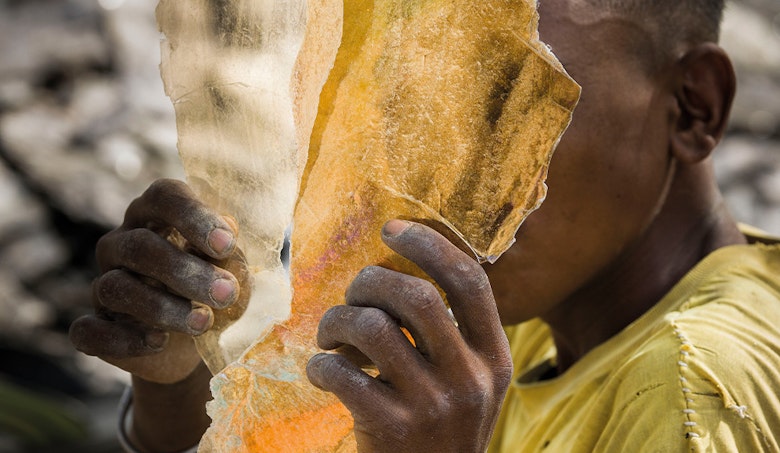Stop child labour in the mica sector of Madagascar
In Madagascar, one of the poorest countries in the world, almost half of all children between the ages of 5 and 17 work. About 10,000 children work in the mica mines. It is an unhealthy and dangerous environment. The children are exposed to dust, heat and the scorching sun. They hardly get any food or drink while working. They miss the chance to go to school. Terre des Hommes stands up for children in mica mines. We make sure they can go to school. We are also working on a fairer pay for the mica, so that families have more income without their children having to contribute.
Maggie de Jongh-Abebe
Program Manager Mica
Background
|
About ten thousand children in Madagascar do not go to school but to the mica mines. They have to work, because otherwise their family has nothing to eat. Whole families often work together in the mines: fathers and adolescent boys dig out mines and excavate mica, while mothers, girls and small children carry and classify them and gather scrap mica. It is one of the worst forms of child labour: hard, unhealthy and hazardous work. Madagascar is one of the largest exporters of mica, a mineral used in paints, cosmetics, electronics and automobiles. The children run serious health risks in the mines. Some of them develop respiratory problems due to the dust and experience back pains from carrying heavy loads.The heat and lack of water or oxygen cause headaches. They lack basic services such as access to water, education and health care. |
Goals
With an approach aimed at positive change, we want to improve not only the situation in Madagascar, but also in other low income countries, who are negatively impacted by mica business and trade. Our programme will be integrating social, public and private interventions at local mining level. It focuses on supply chain mapping and working with relevant private sector actors to take their responsibility. Lastly, the project focuses on the government policies and actions towards responsible mica sourcing.
Approach
The FAMAHA programme works at multiple levels (local, national and global) and with different actors to eradicate the exploitation of children in mica mines in Madagascar.
Latest news
Terre des Hommes manifesto: No more child labour by 2029
From everyday household products to make-up, laptops and batteries, there is a good chance that child hands ha…
The Global Research Agenda
On February 1 2024, the Terre des Hommes Netherlands Global Research Agenda was launched, which will guide our…
Successful Art events in Kenya and Madagascar!
Two successful art events were completed in Kenya and Madagascar centred around the theme of 'Freedom from Exp…
Betoha: “Now I can read, write and I know about children’s rights”
Betoha, 14 years old, lives with his parents and six siblings in Tatabe, Madagascar. He is an active member of…
Rova: “If I succeed in life, I will support my mother and get her out of poverty.”
Rova (11), lives in Madagascar with her mother and four siblings. Her family relied heavily on farming. Sadly,…
“Working in the mine did not help to get to know things, school does”
Rosia (10) lives in a small village in Madagascar with her mother and two younger siblings. Rosia attends the…
#TheClockisTicking for action against child labour
We’re running out of time. In 2015, 193 world leaders agreed to end child labour by 2025 according to the Sust…
Annual report 2018
Thanks to your support, in 2018 we were able to work on tackling child labor in the mica mines in India, child…
Partners
To contribute towards the elimination of child labour in Madagascar’s mica sector, Terre des Hommes Netherlands, UNICEF and the company VDL are implementing the project FAMAHA. This stands for Fampiasana Ankizy amin'ny Mica Andao HAtsahatra, which in Malagasi means 'Stop child labour in the mica mines". The programme is financed by the Netherlands Enterprise Agency´s (RVO) Fund Against Child Labour.

